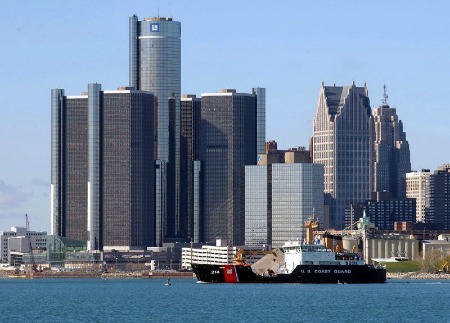
Months after the Detroit Consent Agreement was signed by state officials, the City Council and Mayor Dave Bing, the worst run city in America continues to wallow in chaos. Few of the turnaround recommendations contained in the document have reached implementation stage. And Bing sits idly by expecting a miracle as the city dies at the hands of his neglect.
With default on Detroit’s massive debt and bankruptcy looming, the consent agreement was intended to forestall the more draconian alternative of the governor appointing an emergency manager. Under the agreement, which received unfavorable reviews from city council, the parties agreed to transfer final say on the city’s depleted finances to a financial officer and advisory board. Getting the city back on sound footing also meant finding new ways to provide efficient public safety, transportation, public lighting, garbage collection, parks and recreation, and street lighting services. City departments were slated for consolidation or elimination.
But whatever reforms were envisioned have yet to move beyond blueprint. Above all, the city does not have buy-in by those who must act – and by those whom the actions will impact. That is evident by the strategic minefields that have been set and detonated.
To narrow the deficit and balance the budget, Bing levied a 10 percent pay cut on all city workers — including firefighters and police – and a workforce reduction of 2,500 jobs. However, an Ingham County judge negated the police and fire rollbacks, ruling that Bing and the financial advisory board were illegally given powers of an emergency manager under Public Act 4, which is now suspended pending a Nov. 6 statewide referendum.
The city council is seeking a subpoena against the mayor – both are still distinctly cool to the whole process – to force Bing to share more details of what may be a nonexistent plan to reorganize. And the council’s action on Belle Isle is tantamount to an irrelevant distraction from more pressing issues.
State government involvement hasn’t exactly been awe-inspiring, either. Gov. Rick Snyder allowed a bond deal to be struck with the state to generate $137 million in bond refinancing. But that only allowed the city to paper over the deficit and buy time. The state is threatening to withhold some revenue-sharing funds due to noncompliance. But it’s highly unlikely Lansing will push the city into bankruptcy even without constraints on spending or budget reductions. It’s also tough to lead an implementation effort when decisions about responsibility are still up in the air.
Nevertheless, Mayor Bing, is at the top of a chain of command ultimately responsible for all functions of the city (including crime, which is proliferating). But the best the mayor and his police chief can do is make excuses – like uncontrolled spending – for violence that is unabated on city streets and in schools.
Detroiters are beginning to mount a backlash. Boos drowned Bing out at the last community meeting he attended. Protest marches over crime – and the direction the city is going – have become more common. And the longer city officials drag their feet on reform, the less likely it is that the goodwill and energy necessary for the city’s survival can be sustained. At stake is the survival of a city and what’s left of its dwindling population. Hope for averting the Detroit’s demise will be dashed if this agreement, like other lifelines before it, raises expectations only to see them die in another artificial, impotent, government-driven initiative.
Arguably, Mayor Bing has performed to the limits of his ability in addressing crime and reversing the growing misfortunes of the city. But it has become clear by the absence of consequential reforms that his best efforts are simply not good enough.
Bill Johnson is an award-winning writer, former chief-of-staff for the Wayne County Commission, and a Detroit consultant. Email: [email protected].